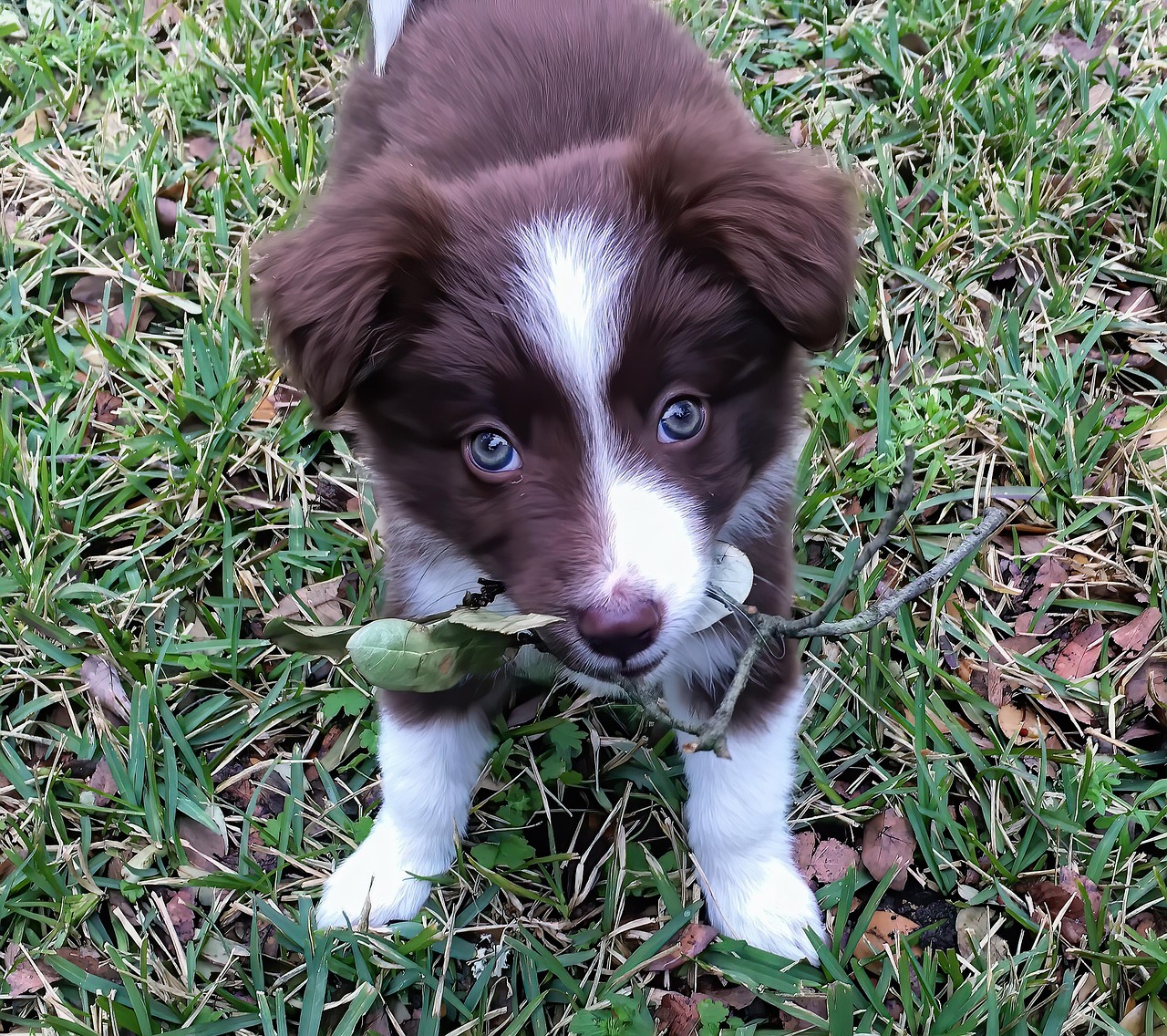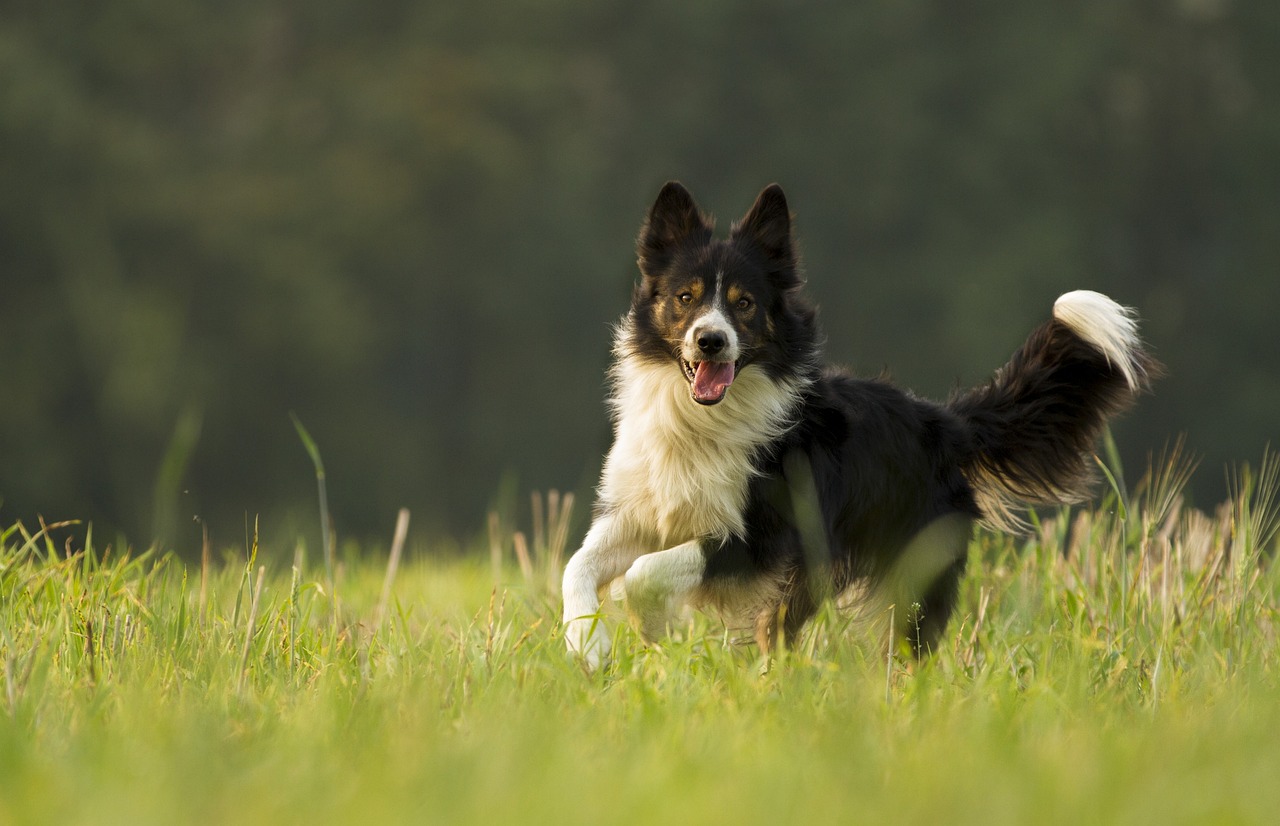Notifications
German Border Collies are renowned for their intelligence, boundless energy, and unwavering loyalty. These remarkable dogs have earned a reputation as one of the most versatile and trainable breeds, making them a popular choice among dog enthusiasts worldwide. However, to ensure the health and well - being of your German Border Collie, it's essential to understand their unique habits and feeding needs.

As descendants of working sheepdogs, German Border Collies have an inherent need for intense physical activity. They require at least 1 - 2 hours of daily outdoor exercise to burn off their excess energy. Activities such as brisk walks, jogs, and playing fetch or frisbee are excellent ways to keep them engaged.
Initially, Sarah underestimated Max's exercise needs. She would take him for a short 20 - minute walk every day. Soon, she noticed that Max started chewing on her shoes and cushions. Once she increased his daily exercise to an hour - long jog and a 30 - minute frisbee session, Max's behavior improved significantly. He became calmer and more obedient, and the destructive chewing stopped. Without sufficient exercise, they may become bored and exhibit destructive behaviors, such as chewing on furniture or excessive barking.

Border Collies are not only physically active but also highly intelligent. They thrive on mental challenges and need regular opportunities to exercise their minds. Training sessions, learning new commands, and participating in dog sports like agility or obedience trials can provide the mental stimulation they crave. Puzzle toys that dispense treats can also be a great way to keep them occupied and engaged.
For instance, a Border Collie named Rocky participated in an agility training course. In just a few weeks, he mastered complex obstacle - course runs, showing off his natural intelligence and quick - learning ability. His owner, Tom, was amazed at how Rocky's focus and responsiveness improved with each training session.

These dogs are generally friendly and sociable, both with humans and other animals. Early socialization is crucial for German Border Collies. Exposing them to different people, animals, and environments from a young age helps them develop good behavior and adaptability. They form strong bonds with their owners and families, and they enjoy being part of the household activities.
The foundation of a healthy German Border Collie diet is high - quality dog food. Look for products that are rich in protein, as these dogs need a significant amount of protein to support their active lifestyle. Opt for premium brands that use real meat as the primary ingredient. Natural or grain - free dog foods can also be a good choice, especially if your dog has any food sensitivities. Additionally, the food should contain essential vitamins and minerals to ensure overall health.
The feeding frequency for German Border Collies varies depending on their age. Puppies typically need to be fed more frequently than adult dogs. For puppies between 8 - 12 weeks old, feed them four times a day. As they grow older, gradually reduce the frequency to three times a day until they are around 6 months old. Adult German Border Collies can be fed twice a day, preferably at regular intervals. Senior dogs may benefit from smaller, more frequent meals to aid digestion.
The amount of food your German Border Collie needs depends on several factors, including their age, weight, and activity level. As a general guideline, an adult Border Collie with a moderate activity level may need about 1.5 - 2.5 cups of high - quality dry dog food per day. Puppies will require more food relative to their body weight to support their growth. For example, a 3 - month - old puppy may need around 1/2 - 1 cup of food per feeding, depending on its size. To adjust the amount accurately, monitor your dog's body condition. If your dog is gaining too much weight, reduce the portion size; if it seems too thin, increase the amount slightly.
German Shepherds are intelligent, loyal, and energetic large dogs that require regular meals and adequate nutrition to stay healthy. However, a busy lifestyle might make it difficult for you to feed them on time, and that's where an automatic feeder becomes your reliable assistant. It not only ensures your dog eats on schedule but also helps you control portion sizes, preventing overfeeding.
Regular Meals: An automatic feeder can provide timed and measured meals, helping your dog develop healthy eating habits.
Portion Control: Avoid overfeeding and prevent obesity-related health issues.
Convenience and Peace of Mind: Even when you're not home, you can ensure your dog is fed on time.
Multiple Meals: For dogs that require smaller, more frequent meals, an automatic feeder makes it easy to achieve.
Capacity: Choose a feeder with a large capacity to suit the appetite of a large breed.
Portion Control: Opt for a feeder that allows precise control over meal portions.
Material: Select feeders made from food-grade materials to ensure safety and non-toxicity.
Stability: Choose a feeder with a sturdy base to prevent it from being knocked over by a large dog.
Features: Depending on your needs, consider feeders with recording functions, remote control, or smartphone app control.
Wopet Smart Feeder: Supports smartphone app control, allows timed and measured feeding, and includes a recording function.
Tips for Using an Automatic Feeder:
* Clean the feeder regularly to maintain hygiene.
* Adjust portion sizes based on your dog's age, weight, and activity level.
* Monitor your dog's eating habits and consult a vet if you notice any abnormalities.
An automatic feeder is a great tool for German Shepherd owners, ensuring your dog eats on time and stays healthy and energetic. We hope this article helps you choose the right automatic feeder for your dog, providing them with a happier and healthier life!
Overfeeding is a common mistake that can lead to obesity in German Border Collies. Obesity can cause a variety of health problems, including joint issues, diabetes, and heart disease. To prevent overfeeding, measure your dog's food carefully and stick to the recommended portion sizes. Also, limit treats to no more than 10% of their total daily calorie intake. Regularly assess your dog's body condition by feeling their ribs. You should be able to feel the ribs without having to press too hard, and there should be a slight layer of fat over them.
Certain foods are toxic to German Border Collies and should be strictly avoided. Chocolate contains theobromine, which can be fatal to dogs. Onions and garlic can damage their red blood cells, leading to anemia. Grapes and raisins can cause kidney failure. Additionally, foods high in salt, sugar, and fat should be kept away from your dog, as they can also pose health risks.
source : German Border Collies: Understanding Their Habits, Feeding Requirements and More